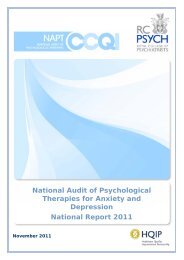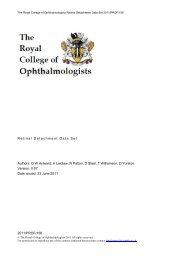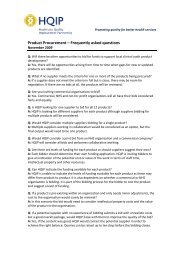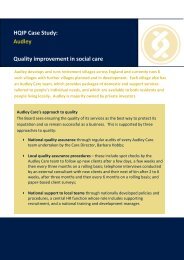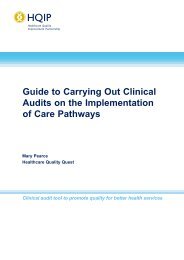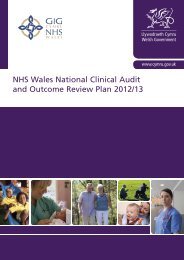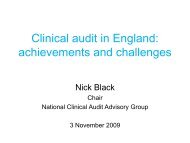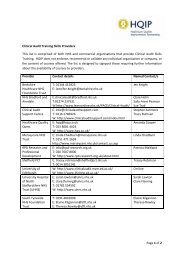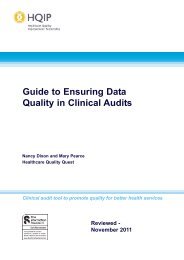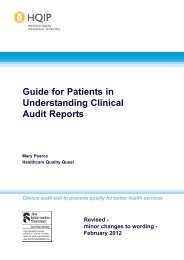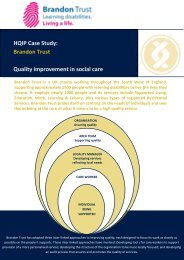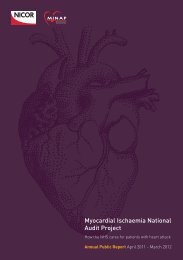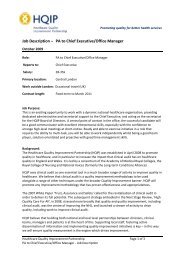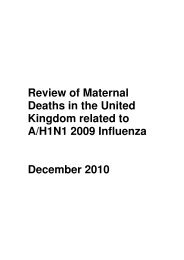Good Governance Handbook - HQIP
Good Governance Handbook - HQIP
Good Governance Handbook - HQIP
Create successful ePaper yourself
Turn your PDF publications into a flip-book with our unique Google optimized e-Paper software.
Nolan 14 says on Openness:<br />
“Holders of public office should be as open as possible about all the<br />
decisions and actions that they take. They should give reasons for<br />
their decisions and restrict information only when the wider public<br />
interest clearly demands.”<br />
Why it is important<br />
Boards and directors should work as if at any time their conduct, decisions and<br />
working arrangements could be made open to public scrutiny. Boards of public<br />
organisations and the work of their directors concerns public money and services.<br />
The behaviour of boards and individual directors should be of a standard to never<br />
compromise the work of the organisation over which they preside through creating<br />
reputational damage. Lord Nolan created standards for conduct in public life that<br />
apply to all NHS board members, and Baroness Fritchie has developed guidance to<br />
help individual board members manage conflict of interest issues<br />
It is a critical part of being an effective healthcare organisation that the public and<br />
service users should trust the organisation concerned, believe advice when it is given<br />
and feel confident to seek care for themselves and their families. Openness and<br />
transparency are essential components of building this trust<br />
<strong>Governance</strong> principle 8: Board supports<br />
To enable the board to work well, the board will need to work through the various<br />
roles and support systems it needs in place. These include:<br />
• Directors – both executive and non-executive, who jointly comprise the<br />
unitary board and who are ultimately responsible for the enterprise.<br />
• Executive directors – who in addition to their director responsibilities hold an<br />
executive portfolio.<br />
• Non-executives – who are directors kept separate from the management<br />
process and can therefore support the success of the organisation by applying<br />
constructive challenge and scrutiny to matters brought before them.<br />
• Chief executive – the executive accountable officer.<br />
• Chair – responsible for ensuring that the board has proper information with<br />
which to carry out its responsibilities, chairs meetings in a way that allows<br />
proper debate and scrutiny of all matters brought before it. The Chair may<br />
also have an external ambassadorial role. The chair will appraise all directors –<br />
in their role as directors - on an annual basis, and provide feedback on their<br />
contribution to the work of the board. The Chair should also initiate regular<br />
reviews of the collective performance of the Board and address any<br />
developmental issues.<br />
14 The Nolan Committee, First Report on standards in public life, 1995<br />
www.good-governance.org.uk 15



